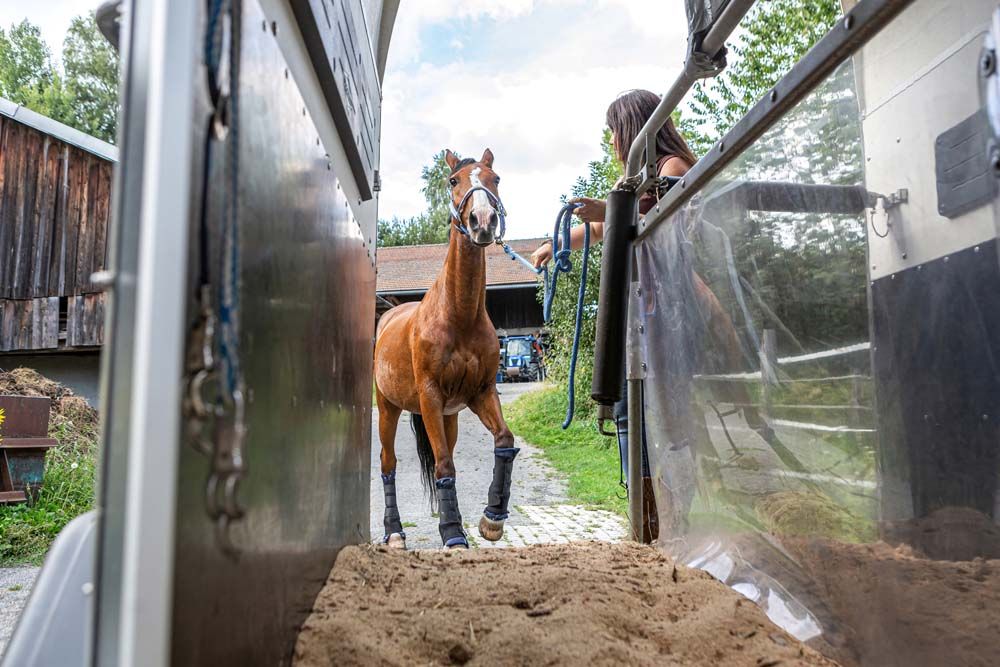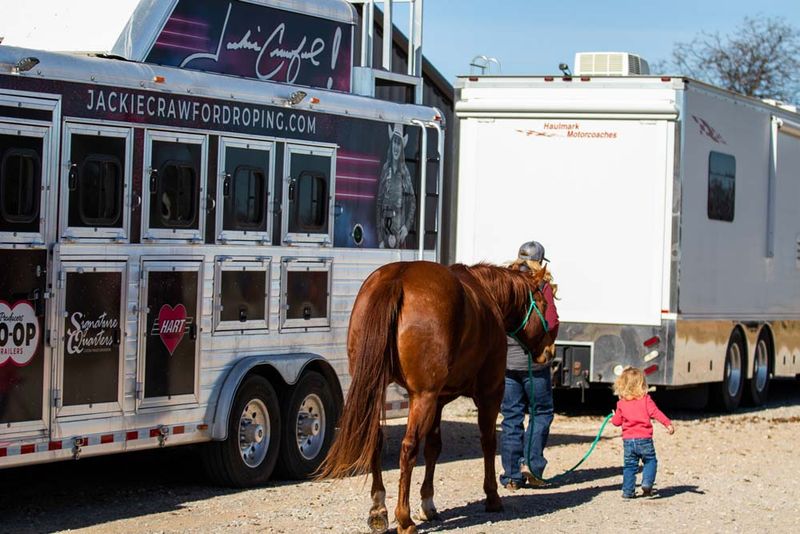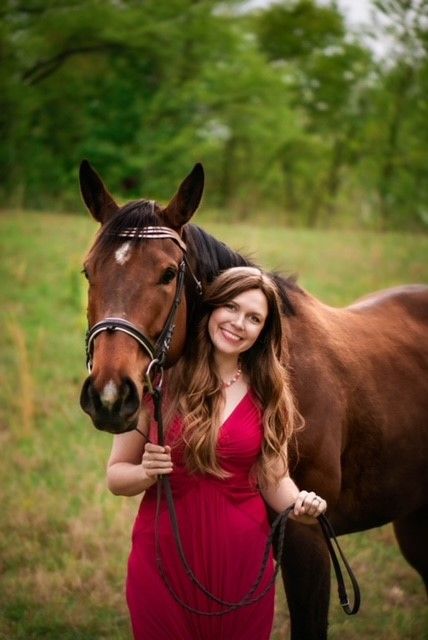Hauling Tips from Experts Who Know


World Champion Breakaway Roper, Jackie Crawford, and Steve Allday, DVM — a competitive team roper and equine lameness specialist, respectively— share their best practices for safer hauling and joint health assurance for horses.
Joint Health
“We ask so much of our horses, not only in competition but even just going down the road,” Crawford says. “They take so much percussion on their joints in the trailer alone—that part worries me even more so than what we're asking them to do in the arena sometimes. We do everything we can, preventatively.”
Prevention is key.
“The pressure of shipping and traveling, and the pounding and grinding from shipping and training and performing, all these things add up,” says Dr. Allday, who also developed joint supplement LubriSyn HA. Prevention and trusted supplements are paramount to maintaining the health of the joint on a regular basis, he said.
Crawford does everything she can, preventatively, with supplements and other considerations when they’re at an event, especially during the summer with even more frequent haulings. She stresses the importance to consider “even the little things,” like where horses are stalled and getting them access to turnout.
Dr. Allday’s credo is to choose preventative medicine over restorative.
“Trying to stay ahead of it on the preventative side is always the smarter move if you're trying to keep an athlete out on the road. The bottom line is, if you can prevent something from happening, you’re going to have better results. Restorative medicine essentially means you're fixing, or attempting to fix, an existing problem at that point and with the approach of restorative medicine, your horse is not going to regain full function, at least not right away,” explains Dr. Allday.

Head-Down Pit Stops
“I like to get horses off the trailer at least every six hours,” says Crawford. “We don't just necessarily get them off and walk them around; I really want those horses to get to rest for the time that they're off the trailer.”
When at all possible, plan ahead to identify safe and secure areas to unload. If an overnight is required, research stables beforehand to reserve a space. If your horse is selective about their water source away from home, haul water with you if possible, along with their regular grain and hay to keep them consistent.
“Also, I think it's very important for a horse to get his head down when you get them off the trailer,” says Crawford. “It's really, really important for a couple reasons. It stretches their back muscles, and it helps to drain any fluid that they have caught up.”
To encourage horses to put their head down, she waters them on the ground, grazes them, or puts hay on the ground for them to graze.
Clean Housekeeping
Crawford is careful to clean out the ammonia from the trailer with her frequent stops, saying, “I don't want them breathing it in.”
Dr. Allday agrees: “Ammonia is very irritating in the airway of both people and horses. Getting that cleared out is an excellent suggestion, especially during the wintertime, because we tend to seal the trailers up.”
Airflow
“I like good circulation and ventilation in a trailer, winter or summer,” says Dr. Allday. “Having good air circulating and removing anything that would build up a lot of the ammonia, in particular, is important.”
Clean air is key, as is keeping airflow from preventing a hot trailer.
“If you have a four-horse trailer with four horses in there, they generate an unbelievable amount of heat,” warns Dr. Allday. “Even in regular temperatures, let's say 72 degrees, four horses require a tremendous amount of air circulation to keep heat from building up inside. During the period of an hour, you can raise the temperature in a trailer by as much as 20 to 30 degrees.”
Airborne Protection
For added protection of their eyes and legs, “We haul our horses with fly masks, so that if anything blows, it doesn't get in their eyes, and we use shipping boots. What I tend to do in the summertime is to use mud or liniment on the legs to help cool the horse,” shares Crawford. She specified that in the summer, she uses the mud or liniment by itself, and in the winter months, she’ll apply underneath of shipping boots.
Tags:Horse Sense

Acreage Life is part of the Catalyst Communications Network publication family.
















